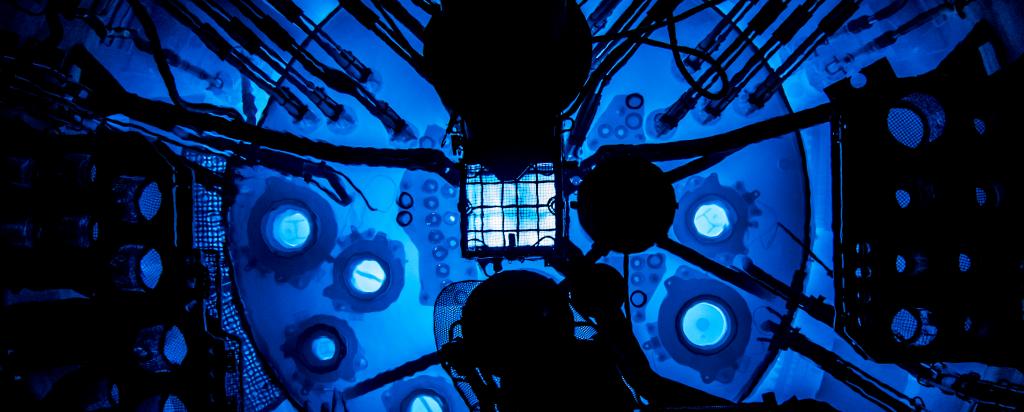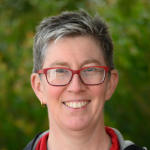
Role at ANSTO
Dr Cath Hughes conducts research in the Environment Research and Technology Group at ANSTO, managing Australia’s Global Network of Isotope in Precipitation, and helping improve water sustainability and manage radioactive contamination using stable isotopes and artificial or naturally occurring radioactive isotopes as environmental tracers.
Her particular interest is in the use of water isotopes (deuterium, tritium and oxygen-18) to understand the hydrological cycle, and the impact of past and present climate, weather and urban and agricultural water use on water resources. Through case studies in the Murray-Darling and Sydney Basins she aims to promote the routine use of stable isotopes in hydrology and catchment studies and to contribute to a national sampling network which will include time series of rainwater, tapwater and atmospheric water vapour isotopes at sites across Australia. This data forms a basis for not only water resource management, but also isotope forensics, food provenance and climate science.
Closer to home she is involved in research related to the movement of radionuclides in sewage effluent and groundwater in the Sydney region and is working with the IAEA to establish guidelines for the safe application of radiotracers in environmental studies. She has also been involved in IAEA/RCA activities teaching and demonstrating applications of radiotracer technology to coastal engineering and environmental problems in Asia.
Research Interests
1. Use of water isotopes (deuterium, tritium and oxygen-18) to understand the hydrological cycle, and the impact of past and present climate, weather and urban and agricultural water use on water resources. Through case studies in SE Australia and Sydney Basins she aims to promote the routine use of stable isotopes in hydrology and catchment studies and to contribute to a national sampling network which will include time series of rainwater, tapwater and atmospheric water vapour isotopes at sites across Australia. This data forms a basis for not only water resource management, but also isotope forensics, food provenance and climate science.
2. Research related to the movement of radionuclides in sewage effluent and groundwater in the Sydney region and is working with the IAEA to establish guidelines for the safe application of radiotracers in environmental studies. She has also been involved in IAEA/RCA activities teaching and demonstrating applications of radiotracer technology to coastal engineering and environmental problems in Asia.
